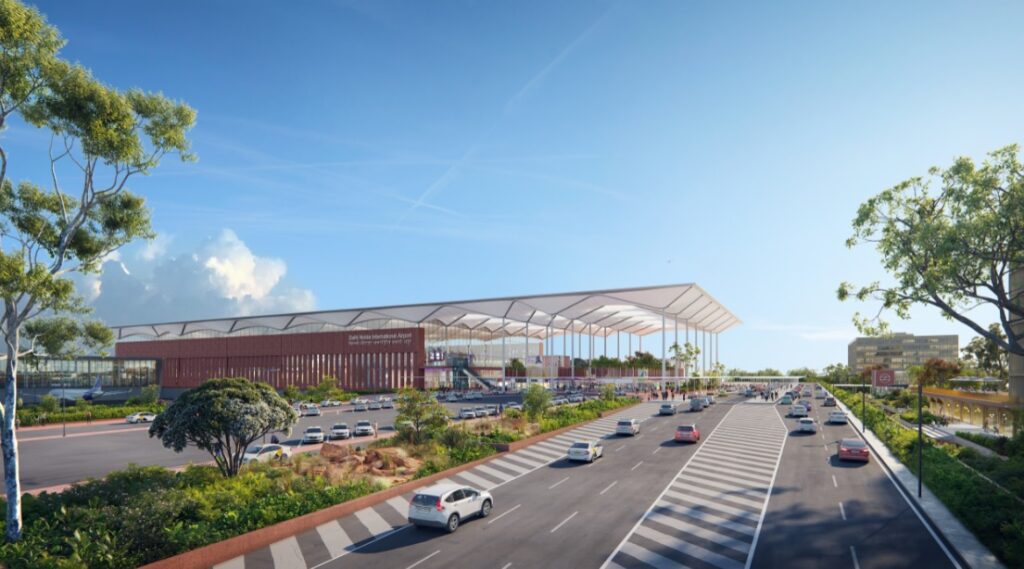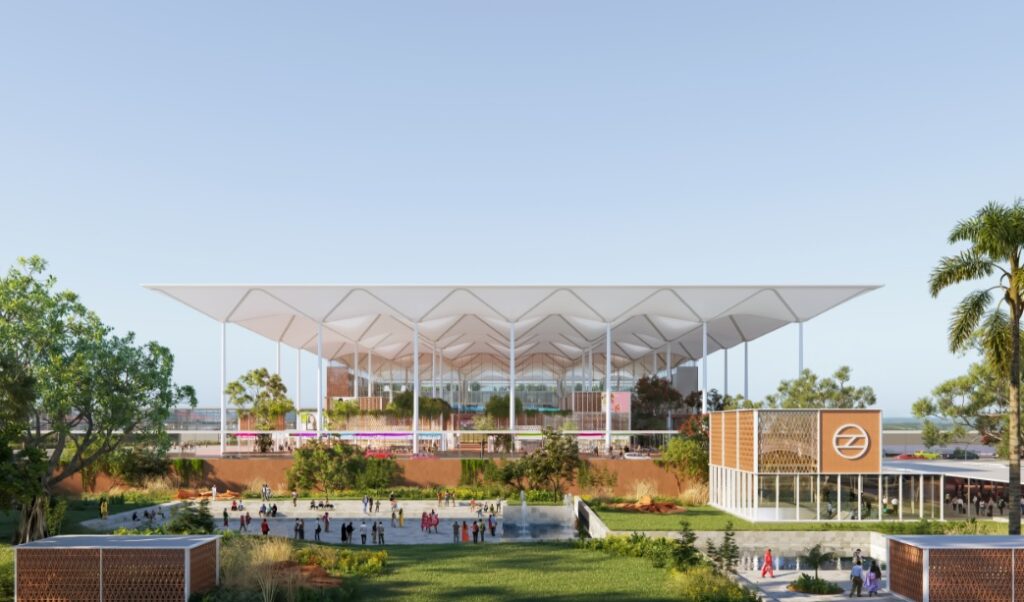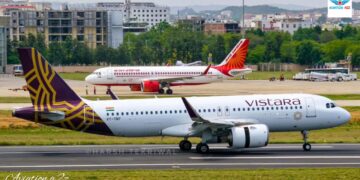UTTAR PRADESH- On February 5, 2024, Suresh Kumar Khanna, the Finance Minister of Uttar Pradesh, announced an allocation of ₹1,150 crore for the forthcoming Noida International Airport (DXN) at Jewar as part of presenting the budget for the fiscal year 2024-25 in the state assembly.
This marks the latest financial commitment to the ambitious project aiming to construct South Asia’s largest airport.

Noida Airport Cargo Hub
The central government has set an ambitious goal of achieving 10 million tonnes of air cargo by 2030. Currently, 90 percent of India’s international cargo volumes are handled by non-Indian carriers.
With domestic airlines making substantial aircraft orders, there is a growing demand for airports to enhance cargo handling capacity. In this context, greenfield airports like Noida International Airport are expected to play a pivotal role, not only in expanding capacity but also in offering state-of-the-art facilities to the industry.
Situated in close proximity to industrial and commercial centers, the airport is poised to leverage its strategic location to facilitate efficient connectivity and seamless transportation of goods between industries and global markets.

COO Remarks
“The airport will significantly augment the capacity requirements of the North Indian air cargo market, particularly for Western Uttar Pradesh and the National Capital Region (NCR), which encompasses various sizable industrial clusters spanning electronics, textiles, automotive, pharmaceuticals, and perishables,” states Kiran Jain, Chief Operating Officer of Noida International Airport.
“Importantly, there is also a dedicated road access agreement for cargo on the eastern side of the airport.”
The development of the airport is led by Yamuna International Airport (YIAPL), a wholly-owned subsidiary of Zurich Airport International.
Expected to be operational by the end of 2024, Noida Airport aims to establish an integrated Multi-Modal Cargo Hub (MMCH) covering 87 acres. Notably, YIAPL has chosen Air India SATS Airport Services (AISATS) to handle the design, construction, financing, and operation of the facility.
“The MMCH, overseen by AISATS, encompasses two distinct infrastructure projects – the Integrated Cargo Terminal (ICT) developed on a 30-acre land parcel and an Integrated Warehousing & Logistics Zone (IWLZ) developed on 57 acres.”
“We strongly believe that the MMCH at the airport, with its integrated infrastructure, efficient processes, and the incorporation of technology and automation, will establish an efficient ecosystem for the air cargo supply chain,” she added.

250K Ton Capacity
Phase 1 of the Integrated Cargo Terminal (ICT), encompassing domestic, international, and express courier terminals with a collective annual throughput capacity exceeding 250,000 tonnes, is presently in construction and anticipated to be operational by the conclusion of 2024.
“Following this, the capacity will be expanded to approximately two million tonnes, encompassing domestic, international, and express courier terminals, along with a specialized coolport facility dedicated to perishables, pharmaceuticals, and other temperature-sensitive cargo. Concurrently, the development of essential cargo terminal structures is accompanied by the ongoing establishment of supplementary facilities, including a trucking center designed for truck parking equipped with amenities for truckers. These initiatives aim to facilitate the smooth movement of air cargo at the airport.”
Furthermore, the integrated logistics project is currently in the design phase, and it is anticipated to incorporate warehousing facilities such as a Bulk Unitization Program (BUP) facility for the assembly/disassembly of pallets/containers, a consolidation center, a customs bonded warehouse, and a logistics park catering to e-commerce entities and third-party logistics (3PL) companies.
Stay tuned with us. Further, follow us on social media for the latest updates.
Join us on Telegram Group for the Latest Aviation Updates. Subsequently, follow us on Google News.



































